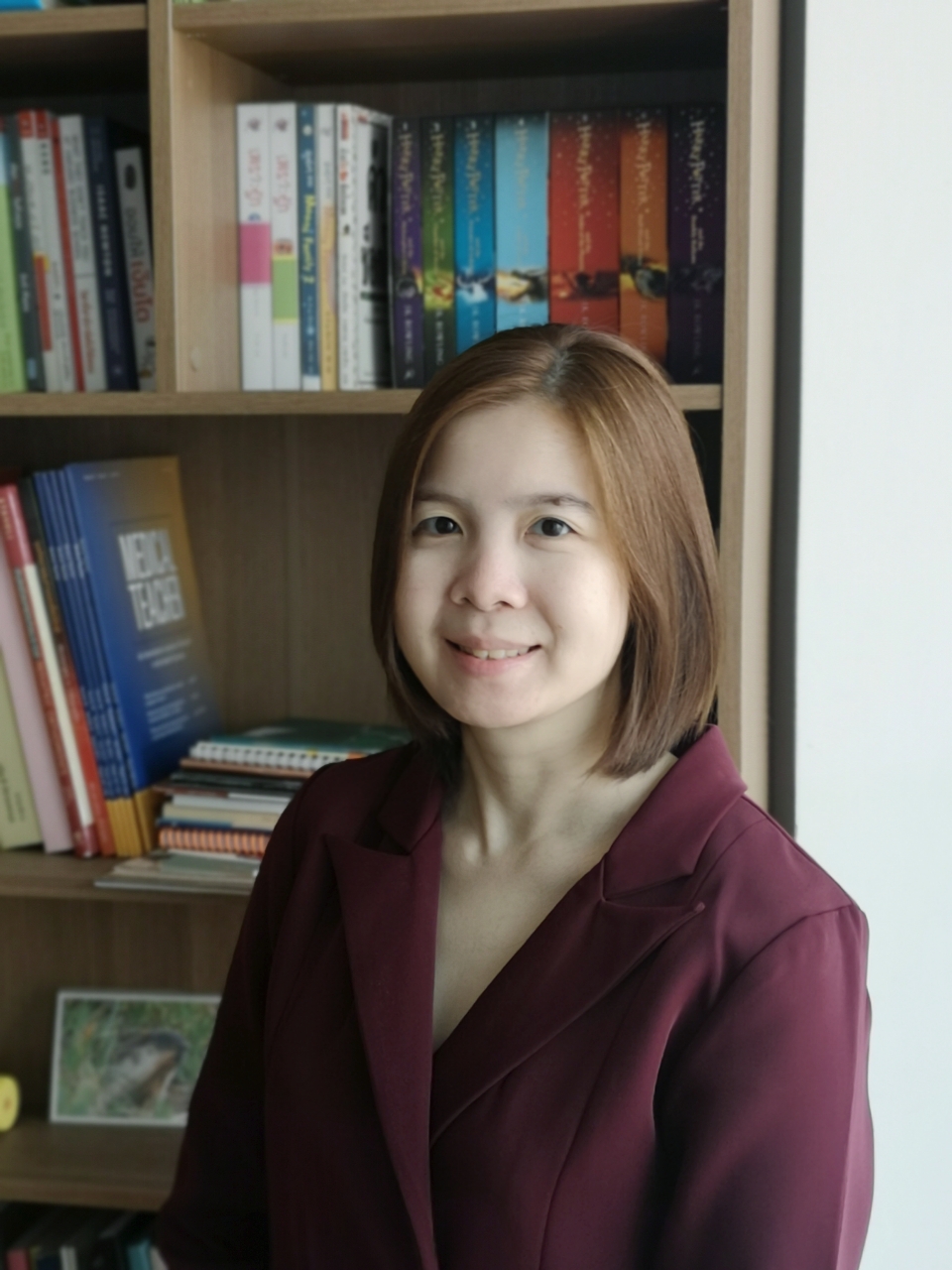 I am ‘Suwimol’ or ‘Jill’ from Bangkok, Thailand, studying in MEd Surgical Education at Imperial College since October 2021.
I am ‘Suwimol’ or ‘Jill’ from Bangkok, Thailand, studying in MEd Surgical Education at Imperial College since October 2021.
I graduated from the Faculty of Medicine, Ramathibodi hospital in Thailand in 2012 and also completed my postgraduate and fellowship programme of Foot and Ankle Orthopaedics from the same institution. Now I am a consultant in Orthopaedic department, Ramathibodi hospital, Bangkok, Thailand.
Why did you choose to study medicine at Imperial rather than somewhere else? Was there anything that stood out when applying?
I’ve known about Imperial College since I was an orthopaedic trainee and had an opportunity to present a poster of my journal at British Orthopaedic Research Society (BORS) conference which was held at Imperial College in 2017. The College's reputation in its quality of training has been recognised from my institution and globally.
I planned to expand my knowledge in the education field as I am a surgical educator in the university hospital. Surgical Education is a specialised programme which is available in a few institutions. Imperial College is one of those institutions providing this programme and as I scrutinised in details of the programme from various institutions, the structure and content of Imperial programme are very outstanding and challenging, entrusted me that I can be successful in my career path following the accomplishment of studying.
What did you enjoy most about this programme?
The programme emphasises not only the theoretical aspect but also the cognition and mindset of being a good surgical educator. Many lectures and discussions were provided by well-known educators and actual writers of authentic articles whose methods or tools are widely implemented in the education field. This kind of opportunity could not be easily experienced and it is a great inspiration.
What aspects did you find the most challenging?
The most challenging part of studying would be language and some cultural barriers. Centre of Academic English provides various courses for development in English; however, most of the course enrollment was available after the Masters’ programme was already started so there was not much time for me to attend the language course completely. Some content in the programme associated with the norm or culture that I am not familiar with, such as the level of medical training in UK or British poems, which I was unable to understand clearly.
What are the main skills you gained as a result of studying on this course?
I gained some skills from doing my programme assignments; for instance, I had to record a video of my teaching session and then edited according to suggestions from module leads. I never knew about any technique or even any application for video editing before. There were so many struggling points at the start but when I could pass through those points, I’ve already achieved the extra skills which I can apply to other tasks in future.
How did you balance your academic and social life?
In the first PGCert year, every session was taught online that I can attend remotely from Thailand. As we are in different time zone, the class sessions don’t affect my daytime consultant job. In the meantime, I need to attend classes in the middle of the night (mostly midnight to 2 am); as a result, it was difficult for me to fully concentrate on my work in the next day. Time management and awareness of my own capabilities could be crucial points to handle all aspects of responsibilities successfully and effectively.
What does being a woman in STEM mean to you?
In my point of view, being a woman or men doesn’t limit your freedom to achieve what you are capable of. I believe that diverse characters, perspectives and skills of people will fulfil any area of work in certain ways. If being a woman in STEM is unique just like being a woman in orthopaedic society, I will be grateful to create the next step of standard for women in future.
Where / what are you working on now?
I am responsible for taking care of medical students, postgraduate trainees and curriculum development of my department.
How has it helped you so far, how do you think it will help you in the future, and what is your career path plan?
Learning in Surgical Education provides me so many ideas and knowledge that I can apply for curriculum development even though I am still studying in the first year. Therefore, I look forward to learning much more as I am going through this Masters’ programme to become a competent surgical educator.
Do you have any advice to prospective students who are thinking of applying to study medicine at Imperial?
Studying in Imperial College will be absolutely challenging but you will never regret.